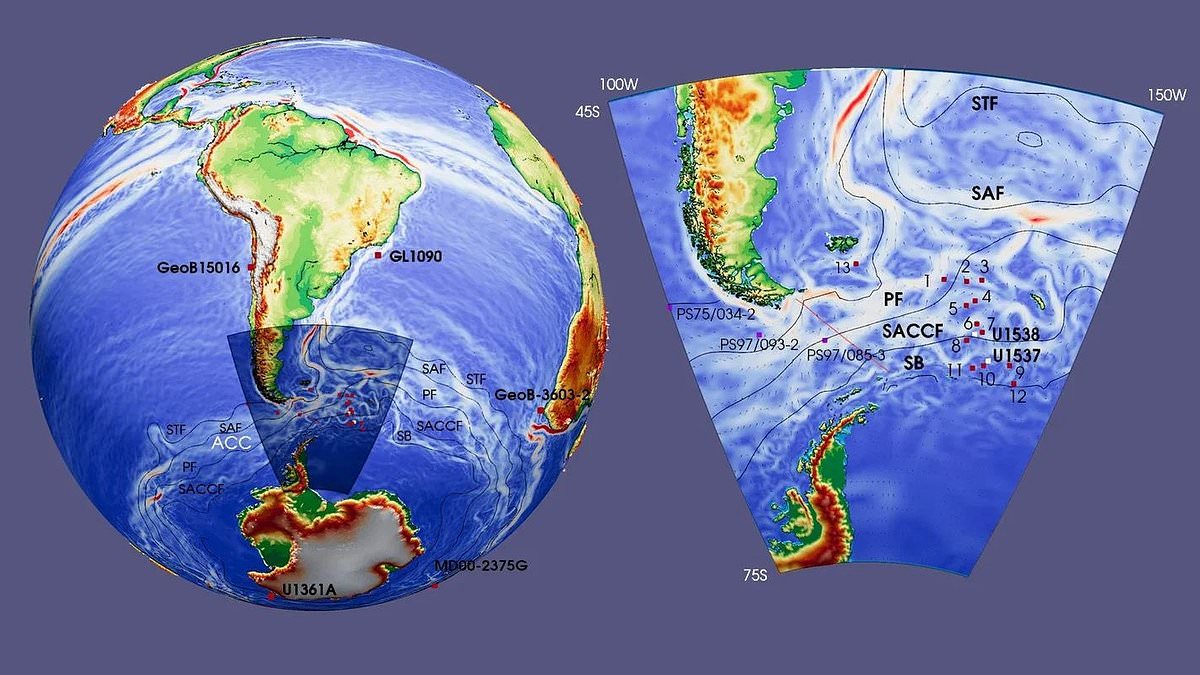Home / Environment / Antarctic Circumpolar Current Slows to Alarming Levels, Risking Global Climate Disruption
Antarctic Circumpolar Current Slows to Alarming Levels, Risking Global Climate Disruption
8 Oct
Summary
- Antarctic Circumpolar Current has slowed over 3 times since 130,000 years ago
- Slowdown could lead to more climate variability and accelerated global warming
- Human-caused climate change may further reduce current's speed by 20% by 2050

According to a new study, the Antarctic Circumpolar Current (ACC), the world's largest ocean current, has experienced a dramatic slowdown over the past century. Researchers from the University of Bonn have analyzed sediment samples and found that the ACC is now running over three times slower than it was 130,000 years ago.
The ACC is a critical system that plays a key role in regulating the global climate and ecosystem. Powered by westerly winds, it transports heat, dissolved carbon, and nutrients around the Antarctic continent, connecting the Atlantic, Pacific, and Indian Oceans. However, this "engine" appears to be grinding to a halt, with potentially disastrous consequences.
Experts warn that if the ACC continues to slow down, it could lead to more climate variability, with greater extremes in certain regions, as well as accelerated global warming due to a reduction in the ocean's ability to act as a carbon sink. Additionally, the current's slowdown could disrupt global fisheries and allow invasive species to enter Antarctic waters, further destabilizing the region's fragile ecosystem.
Researchers suggest that the primary driver of the ACC's slowdown is changes in the Earth's orbit and tilt, which influence wind patterns. However, human-caused climate change is also playing a role, with simulations indicating the current could slow by an additional 20% by 2050 due to the effects of global warming on Antarctica's ice shelves.



